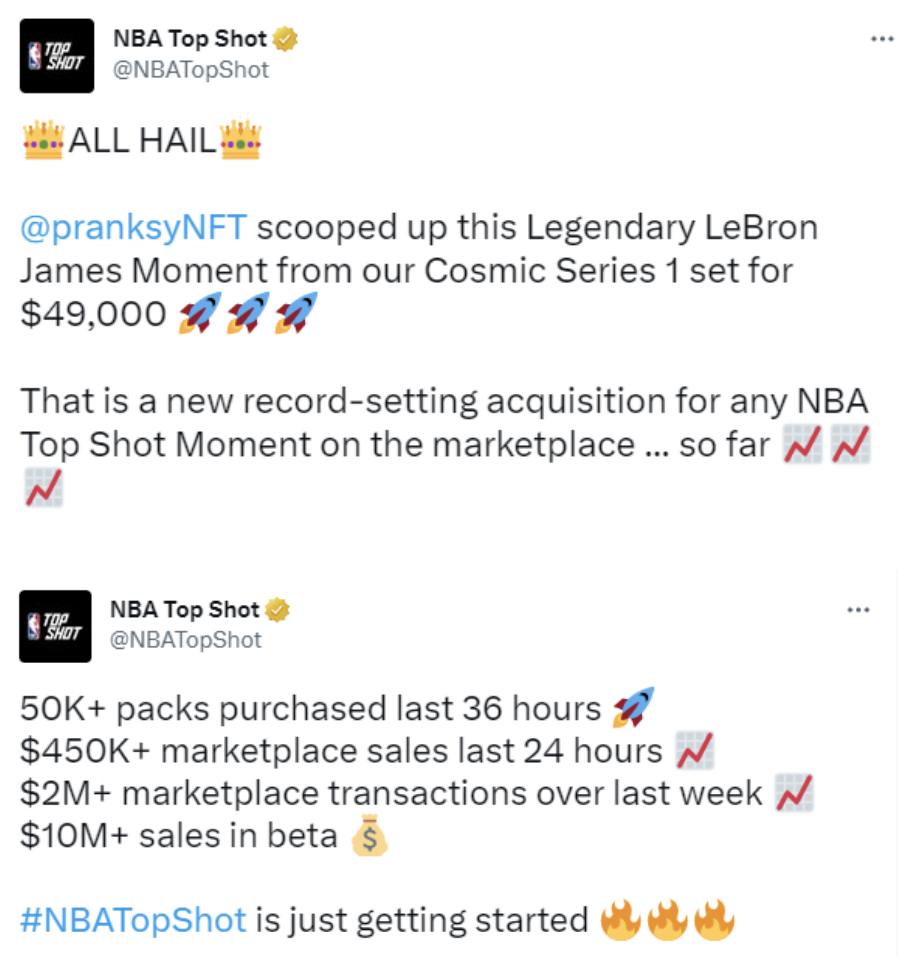Emojis Can Amount To Securities Fraud. NFT Industry Mind-Blown, Eggplanted.
Somehow, people seem legitimately confused that they can't avoid laws with pictures.
 The financial industry used to be able to make 💩 up so 🤷♂️ investors would hand over their 💵. Then the United States passed securities laws and started to crack down on people ginning up public investment based on wild or outright false promises of future returns.
The financial industry used to be able to make 💩 up so 🤷♂️ investors would hand over their 💵. Then the United States passed securities laws and started to crack down on people ginning up public investment based on wild or outright false promises of future returns.
This made Wall Street very 🤬.
As decades passed, those folks eventually had to accept the SEC, but a new generation of finance bros have shaken off the strictures of Wall Street and moved to the crypto industry (which doesn’t have a “Street” as much as digital tokens denoting partial ownership of a road that doesn’t exist).

The Global Legal News You Need, When You Need It
And they think they are very, very clever. Some of them had an idea: instead of promising a profit, maybe we can skirt the ENTIRE SECURITIES LAW REGIME by using some emojis instead!
Well done, you guys!

Judge Victor Marrero was less impressed with the argument that securities law withers in the face of pictograms. Without quoting Oliver Twist, the judge decided that if the law supposed that, the law is an ass.
Sponsored

Legal Knowledge Management To Drive Dealmaking

Stuck Drafting A Tough Brief? This Tool Can Help.


Stuck Drafting A Tough Brief? This Tool Can Help.
In an ongoing class action alleging various securities law violations by the folks behind the Tweet above, Judge Marrero denied the motion to dismiss noting, inter alia, that those emojis have meaning. And that meaning may have implications for the outcome of the case.
Each Tweet promotes a recent sale or statistics of recent sales of Moments on the Marketplace. And although the literal word “profit” is not included in any of the Tweets, the “rocket ship” emoji, “stock chart” emoji, and “money bags” emoji objectively mean one thing: a financial return on investment.
Emojis can mean multiple things. I’ve already used the chocolate ice cream emoji and you definitely didn’t read it that way. But a money bag isn’t even coy! Seriously, you can’t avoid laws just by using pictures the same way you can avoid any semblance of actual value by using JPEGs.
This opinion has irritated the people you’d expect.
One Twitter user described the news as “tragic,” while another pointed out that freedom of speech no longer extends to emojis.
Sponsored

What Do Millennials Think Of Law Firm Life?

The Global Legal News You Need, When You Need It
Yeah, that’s what happened. How do people this stupid survive? The act of inhaling has to tax the medulla oblongata more than understanding that fraudulent statements aren’t protected by the First Amendment.
Oscar Franklin Tan, the chief legal officer of NFT platform Enjin, also commented on the issue. Tan told Cointelegraph that the Dapper Labs decision should not create a “dangerous rule” that emojis make NFTs securities.” Tan explained that:
“Courts should protect the edgy, freewheeling messaging in NFT communities because shitposts and emojis are part of free speech too.”
According to Tan, sneaker resellers can also use the same “FOMO,” or “fear of missing out” pitch and use the emojis cited in the case.
I think a lot of bankers in the 1930s wanted the courts to protect “edgy, freewheeling messaging” too, but we decided against “privileging scam artists for the LOLs.” Sorry, I meant for the 😂. Honestly, the crypto world shifts between this nouveau-goldbug, libertarian “we will replace all world currency” messaging and “shitposting about monkey pictures is a core value” enough to give anyone whiplash.
Now, maybe there’s something to the argument that NFTs aren’t properly “securities” and maybe that gets the defendants out of this case. And even if they are securities, these specific emoji messages might not be fraudulent statements. But emojis are statements, even if they are used to convey implied meanings.
That shouldn’t be particularly controversial. Unless you’re a 🤡.
 Joe Patrice is a senior editor at Above the Law and co-host of Thinking Like A Lawyer. Feel free to email any tips, questions, or comments. Follow him on Twitter if you’re interested in law, politics, and a healthy dose of college sports news. Joe also serves as a Managing Director at RPN Executive Search.
Joe Patrice is a senior editor at Above the Law and co-host of Thinking Like A Lawyer. Feel free to email any tips, questions, or comments. Follow him on Twitter if you’re interested in law, politics, and a healthy dose of college sports news. Joe also serves as a Managing Director at RPN Executive Search.








